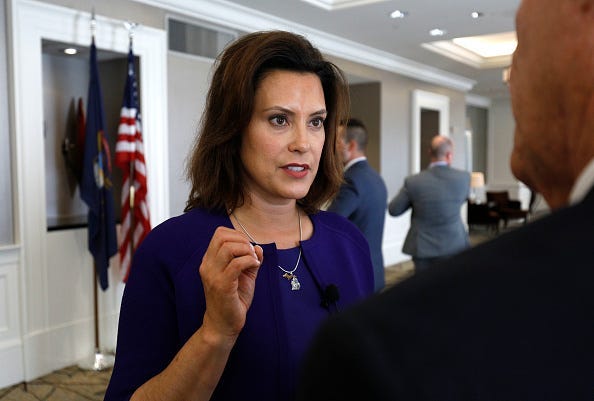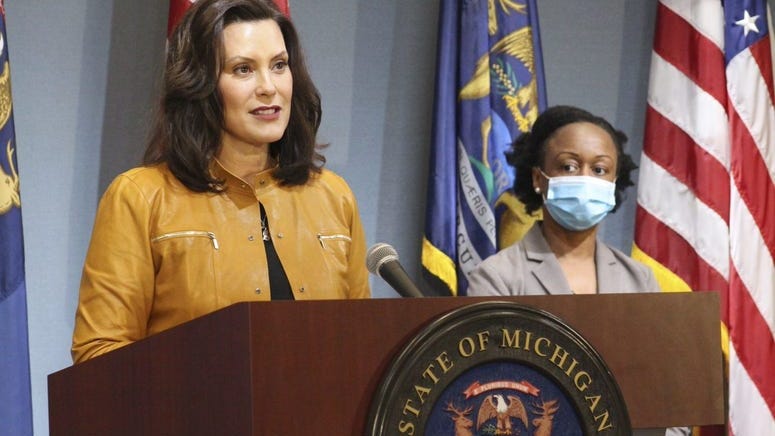
DETROIT (WWJ) -- Today is Essential Worker Appreciation Day, and frontline workers in Michigan are being recognized by Governor Gretchen Whitmer for their efforts during the COVID-19 pandemic.
At a press conference this morning in Detroit, Whitmer will join members of the Service Employees International Union (SEIU) to endorse “Hero Pay” legislation that supports frontline and essential workers in Michigan.
“Today, we honor the essential workers who stepped up for their families, communities, and the state of Michigan,” Governor Whitmer said. “The hundreds of thousands of folks who worked through the pandemic to keep the rest of us going embody what being a Michigander is all about: you care for your neighbors, you work hard, you get it done no matter the odds. We must ensure they have the support they need to thrive as we emerge from the pandemic together and I will fight alongside my colleagues in the Michigan House and Senate to ensure they get the hero pay they deserve as we continue our economic jumpstart.”
Introduced by Sen. Marshall Bullock (D-Detroit) and Rep. Cynthia Neeley (D-Flint) in the Senate and House, respectively, the legislation proposes that the state use federal funds from the American Rescue Plan to provide better pay to frontline and essential workers.
Currently, more than half of all jobs in the U.S. with a median wage below $15 per hour are considered essential, including nursing home workers, hospital workers, school workers, janitors, security officers, corrections officers, Unemployment Agency workers, and all State Workers.
“We owe a debt of gratitude to our essential workers that we can never truly repay,” Rep. Neeley said. “The least we can do is provide them with financial compensation that measures up to the tremendous service they’ve given to our communities and their work in helping us through the pandemic.”
Guidelines issued by the U.S. Department of Treasury last month stated that states and cities were allowed to use federal aid to offer essential workers higher pay, noting that they “have and will bear the greatest health risks because of their service in critical infrastructure sectors.”
The latest resolutions are a continuation of previous actions from the state of Michigan, in which federal CARES Act dollars were used to provide hero pay to more concentrated group of of frontline essential employees.
These included workers in public-sector-funded industries, including a one-time $1,000 for first responders and a $2-per-hour for direct-care workers who provided Medicaid-funded care.

